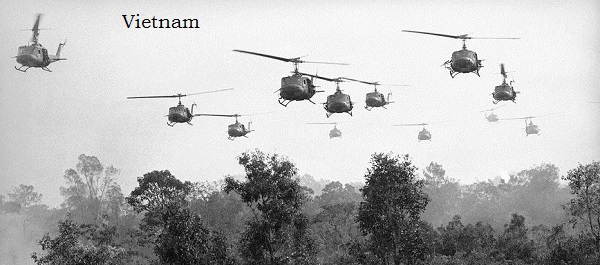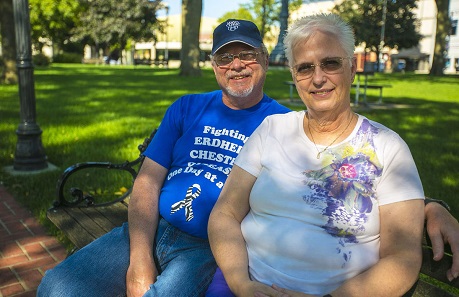


Cerro Gordo County Iowa
Part of the IAGenWeb Project
|
The Globe-Gazette
 The Globe Gazette will publish 50 stories — starting on Veterans Day — about North Iowa’s Vietnam Veterans. The stories will appear on Sundays and Wednesdays. We’ll culminate this "They Served With Honor" project with a special section (publishing on the day before Memorial Day) that will include all of the profiles. It will be great keepsake and resource for family members, educators and part-time historians.
by Courtney Fiorini, January 03, 2016

Bob sits in his living room with his wife, Phyllis, in Mason City. They've been together since high school. Rodgers didn't receive any major decorations during his time in Vietnam, and that is fine by him. "He just got to marry his high school sweetheart," Phyllis laughed. Bob considers his marriage to be the "best prize of all." "We started dating when she was 14," Bob said. "We graduated in 1968." When Bob was 19, he was sent to Vietnam after he volunteered for service. he served in the U.S. Army and earned [the] rank of E-5 specialist in his three years in the military. Bob had his basic training in Fort Lewis, Washington, and was later moved to Fort Rucker in Alabama. He finished at Hunter Army Airfield in Savanah, Georgia. In that time, he went to school to be a helicopeter mechanic. "I went to Vietnam in October of '69," Bob said. "I started out in the maintenance department working on helicopters - I flew a little bit that way." Bob flew test flights and later decided that he wanted to be a crew chief. He never became a crew chief but he found himself volunteering for extra tasks. "One of the volunteer jobs I went on, our commanding officer at formation in the morning was looking for two volunteers to go help rig a downed helicopter so we could get it out since it had engine failure," Bob said. "That turned out ot be a lot more than just going to pick up a helicopter. I don't think I can talk about that part. It was quite an experience." Bob suffers from severe depression and PTSD because of things he witnessed through his service, he said. After a while, he received training to be a technical inspector. He would look at the mechanic's work on the helicopters and either approve it or decline it. He was stationed in Vietnam in 1969 and 1970. Adjusting back to civilian life "was hard," Bob said. He is considered to be 60 percent disabled because of service life difficulties, Bob said. "It caused a lot of things in our marriage. The evenings were terrible for me," Bob said. "10 days after I got home from Vietnam we got married." Bob and Phyllis were married on Nov. 15, 1970. He was stationed in Savanah for 10 months after he returned from Vietnam. "A 10-month-long honeymoon," Phyllis said. The Rodgers attended Operation LZ in August. "What they did in Forest City was outstanding," Bob said. "You could jus tsee it in the vets that you met that they were very appreciative of what was going on. We didn't get any of that when we got home." He sees a difference between people's reaction to him being a Vietnam veteran now compared to when he first came home. "I don't remember any thank-yous when I came home," Bob said. "Even when I would walk down Main Street in our small town in southwest Iowa, nobody would talk to me." Bob didn't get welcomed home until 1986. "The first time we ever seen the Travelling Wall, he was wearing his fatigue shirt and as we were walking, someone said, 'Welcome Home.' That was the very first time, 16 years later," Phyllis said. He has also visited the Vietnam Wall in Washington, D.C. Now, Bob and Phyllis are heavily involved in The Erdheim-Chester Disease Global Alliance. Researchers may classify Erdheim-Chester as a cancer of the blood, which would be a good thing for Bob since he could possibly link it to exposure to Agent Orange in Vietnam. Bob thinks that a lot can be learned from Vietnam in the United States. "I think we need to be really careful about how we deploy our troops," Bob said. "The welfare of the troops is very important and we need to pay attention to history."
Photograph courtesy of Globe-Gazette
|